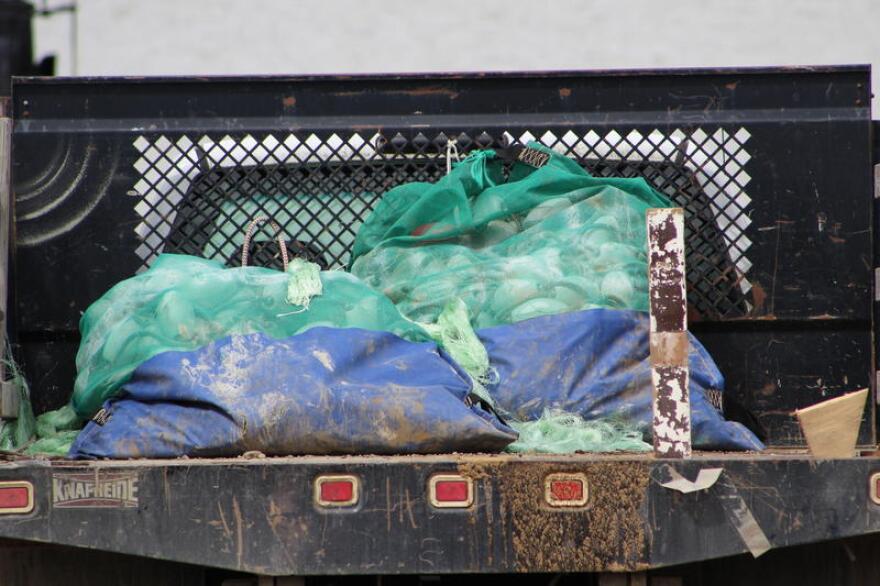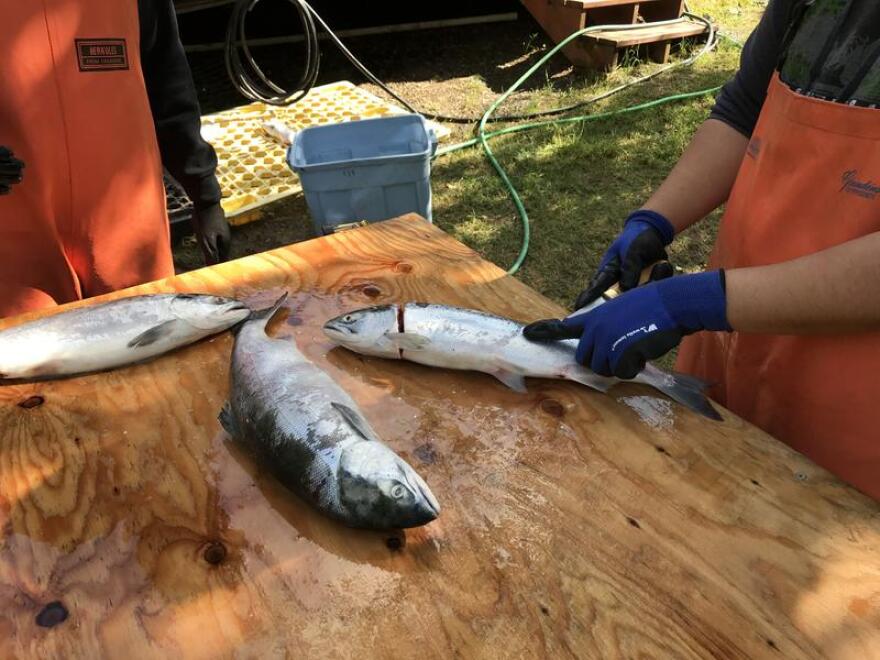It was another huge year for Bristol Bay's fishery. KDLG's coverage ranged from how the pandemic affected the season and fishermen's reactions to prices to the lowest run on record in the Chignik River.
Even before the COVID-19 pandemic took hold in Alaska, the year was off to an eventful start for the largest wild salmon fishery in the world.
In February, the National Oceanic and Atmospheric Association announced that the Port of Bristol Bay in Naknek was the second most valuable port in the country.

Jeremy Kern, the Naknek Harbor port foreman, attributes some of its success to keeping staff local.
“They know the industry," he said. "They’ve grown up around the industry. They know a lot of the fishermen and a lot of the processing people at the different plants.”
Bristol Bay’s fishery makes up the largest part of the region’s economy. But with so many fishermen flying in from around the world, concerns about COVID-19 plagued discussions in the lead-up to the 2020 fishing season. The Dillingham City Council and Tribes from both Dillingham and the Bristol Bay Borough united to ask Governor Dunleavy to close the fishery.
“The Tribal Organizations of Naknek, King Salmon, and South Naknek, consider this pandemic to be of utmost importance. Our people, and our culture are at risk,” the Tribes said, adding that they are prepared to take more stringent measures.
“Our communities will be the FIRST to be impacted by a huge influx of processing workers,” the City of Dillingham and the Curyung Tribal Council wrote. “There is no way to prevent a potential mass disease situation when a few hundred people are in close proximity with each other.”

Many organizations, from large processors and local entities, worked to make the season safe. Processors closed their campuses and started widespread testing, and the Dillingham harbor set new rules to limit harbor traffic.
The bell of the -- socially distant -- Blessing of the Fleet marked the start of the commercial season.


As fishing began, economists were unsure of how markets would be affected by both suppliers and demand.
"If you want to categorize the bad news, the biggest factors are the sheer operating logistics for this industry in dealing with this virus, and keeping the workers safe," explained Gunnar Knapp, professor emeritus of economics at UAA. "That's one huge complexity. The second is the drastic drop-off in restaurant consumption, and the third is the drastic decline in people's incomes. Those are the three major hits."
The Chignik River experienced abysmal returns for the third year in a row.
“Usually the criteria for a stock of concern is three years of not meeting the minimum escapement goal, so there is the potential that this early run could turn into a stock of concern,” said Ross Renick, the management biologist for the Chignik area.

When base prices and bonuses were posted at just over half of the 2019 prices, fishermen were disappointed.
“I see the season that I could have worked at home, very mild sleep, be with my kids, my wife, and make the same," said Alex, a captain from Wasilla who fishes for Peter Pan Seafoods. He declined to give his last name.. "Here I only slept for an hour or 30 minutes, and boys that are working their butts off, and we get that? It’s not worth it.”
In the end, the Bristol Bay fleet hauled in the fifth-largest harvest on record.
In September, the pandemic was estimated to have cost the region at least $50 million.

“It was a huge lift to get all employees tested, transported, quarantined, and fully integrated into each of our plants all while observing a closed campus and all COVID-related protocols and doing it all with very little time to plan and prepare for the summer salmon season,” said Julianne Curry, the public affairs manager for OBI Seafoods.
Despite the pandemic, people were still able to celebrate the season via distanced Culture Camp and a virtual Salmonfest. The total harvest came in at 39.2 million fish with bay-wide escapement at 18.6 million fish.






